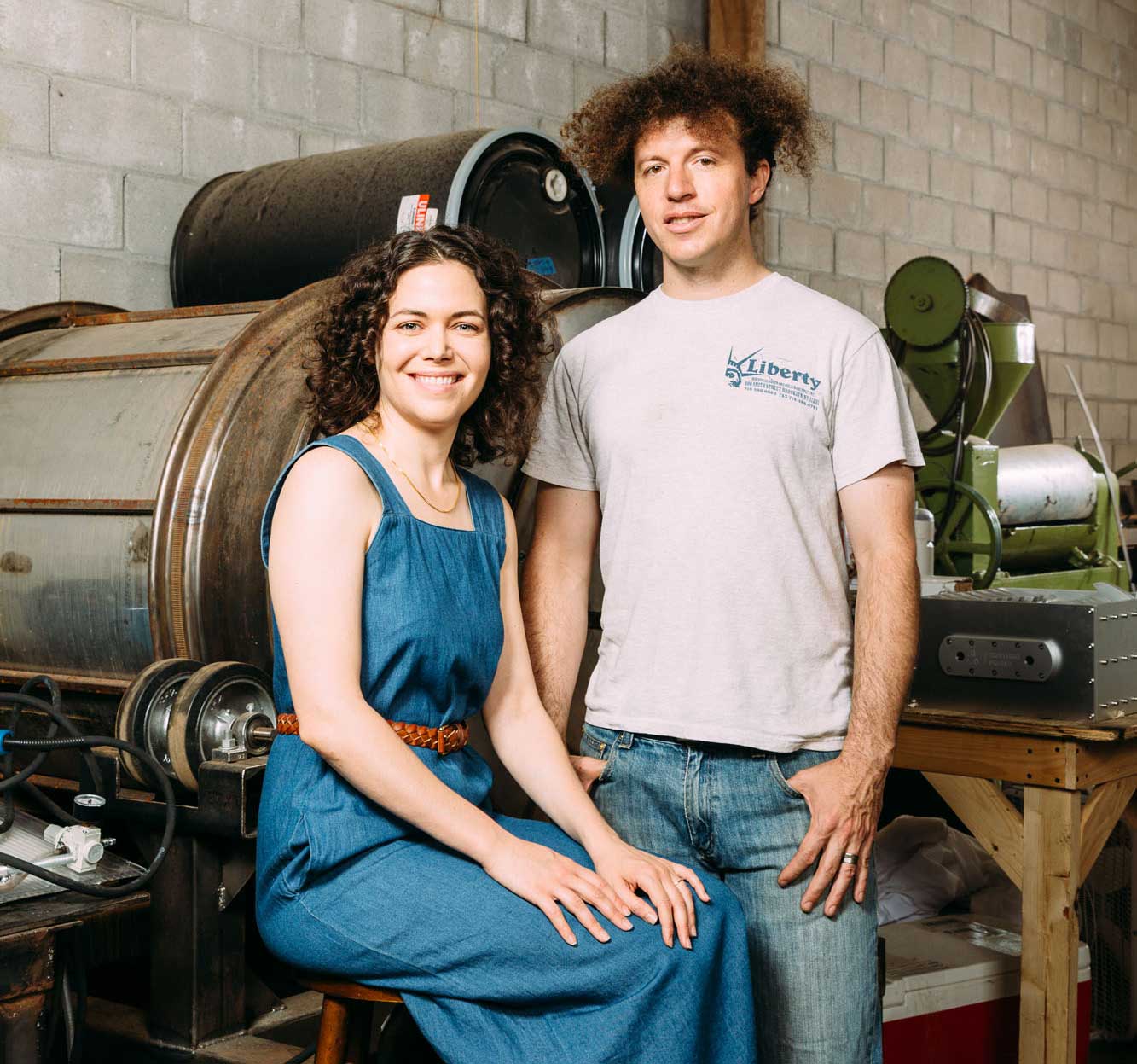
Soil erosion, loss of farmland, increased levels of CO2 in the atmosphere, rising temperatures, water scarcity, food waste, landfills—these are the unsustainable realities that keep Industrial/Organic (IO) co-founder and CEO Amanda Weeks up at night. But after a year of research, three years of testing, and a successful seed round of funding, IO is opening its first food waste facility in Newark, New Jersey, and according to IO’s website, it is ready to close “several crucial loops necessary to support public health, environmental resilience, and economic growth.”
IO is a waste management service, but more accurately, it is the waste management service of the future, employing the kind of commitment, foresight, and ingenuity that is timely and absolutely essential. According to IO, food waste is the largest contributor to landfills in the United States with one-third of all food produced ending up as waste.
Amanda Weeks is from Staten Island and grew up just a few miles from Fresh Kills—the 2,200-acre landfill that at the peak of its operation took in 30,000 tons of trash a day from New York City. The stench of garbage was always in the air. Before co-founding IO, Weeks worked as a market researcher, and through consumer insights, she gathered that food waste diversion was trending, especially in urban areas, but there’s a dearth of facilities capable of organic recycling.
Enter Industrial/Organic. The proprietary process is ideal for urban areas because it’s fast (3 days), clean (reduces transport emissions), odorless (does not produce methane), requires little infrastructure (pop-up, modular design), and saves space (unused, industrial buildings are perfect).
Weeks’ initial concept took years of research validation by a team of scientists and engineers, resulting in the proprietary process which she graciously explained to the unscientific staff at Jersey Digs:
“Similar to a brewery or winery, we ferment food waste in an enclosed tank. The fermentation process sterilizes and stabilizes the organic matter, while also releasing the high moisture content in food. We then separate and reclaim the individual resources present in food waste or that are generated as a byproduct of fermentation: carbon, nutrients, water, organic acids, and alcohol. We use these raw resources to then manufacture new products from organic fertilizers to household cleaning products.”
Newark is IO’s first commercial-grade facility, getting the process out of the lab and into use. Set up in an old meatpacking plant, the location is just 7,000 square feet, which is tiny when compared to traditional waste facilities that sit on multiple acres far outside the city limits. IO chose Newark for its pilot “micro-facility” because “there’s a lot of development going on here, catalyzed by large firms who call Newark home, such as Audible and Prudential. We wanted our first facility to be at the ground floor of an urban renaissance,” says Weeks.
The plan moving forward is to have a “distributed network of smaller facilities that break up the distance that waste travels which in turn eases the burden on specific communities,” says Weeks.
IO recently received approval from Essex County to file its permit application with New Jersey’s Department of Environmental Protection and hopes to be up and running by Spring 2018. IO is also laying the groundwork to train and provide career paths to traditionally underemployed groups as well as increase their involvement with universities and government policy to raise awareness and further affect change.
“Part of sustainable development is making a positive impact on the communities we serve. Every community is different and we plan to serve the underserved in every community we work in,” says Weeks.
Check out IO’s website which is a true primer on conventional agriculture, traditional waste management, and the ways Industrial/Organic is inserting itself into each stage of the current, unsustainable cycle to ensure a future for us all.